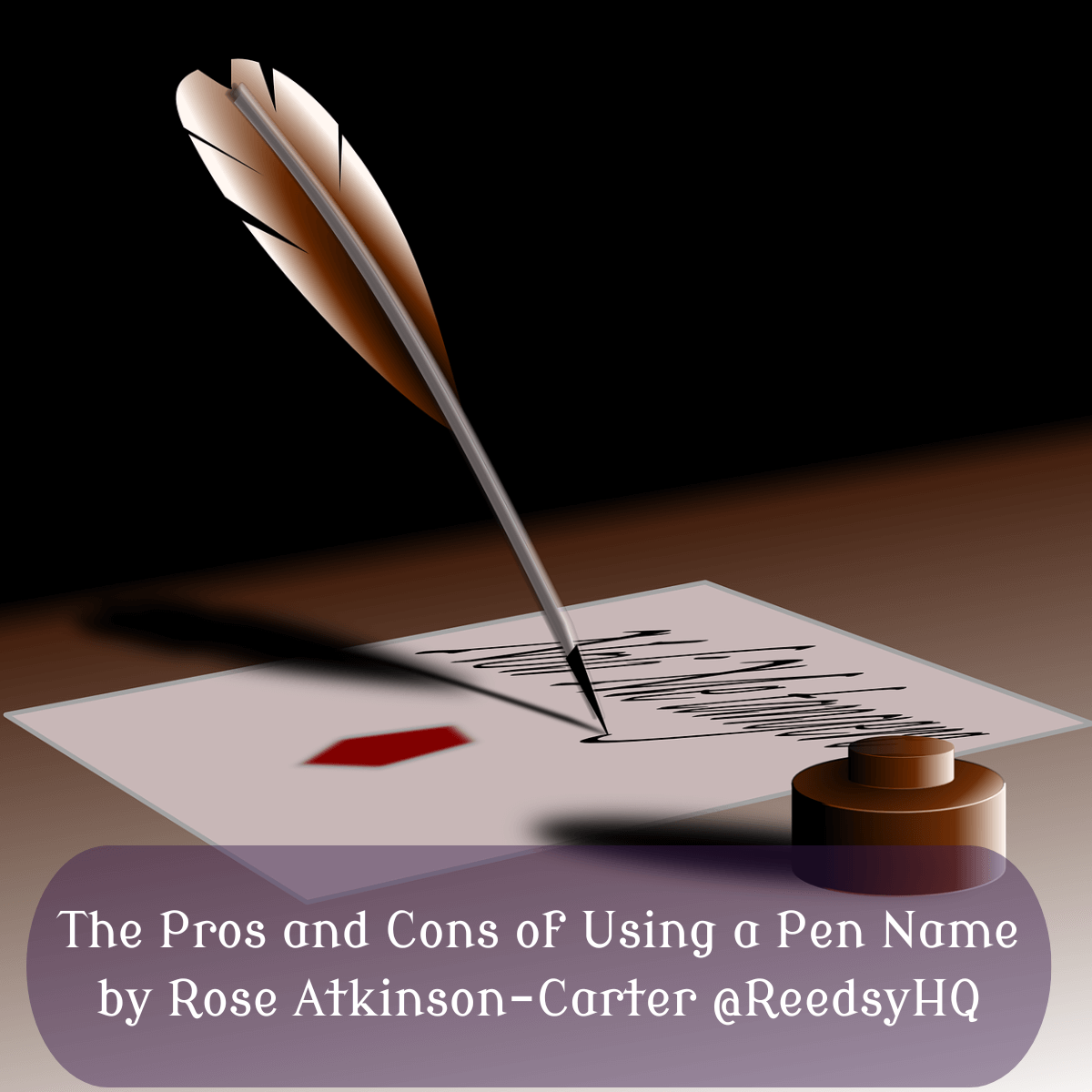by Rose Atkinson-Carter, @ReedsyHQ
Pen names have been around for as long as writers have been writing and getting published. From the days of Samuel Clemens (more widely known as Mark Twain) to the ever-elusive likes of Elena Ferrante today, there are times when writers would prefer to keep their real identities a secret.
Whether it’s to separate your literary career from your everyday life or to preserve your privacy, a good nom de plume has many uses. Before you spend time brainstorming the perfect pen name, consider the following pros and cons of having one.
Pro: You can separate your different writerly identities
Not all authors stick to writing in one genre. Their interests might span the board, and they could be just as invested in writing the next great American novel as crafting a horror story that’ll scare your pants off. It’s in cases like these that a pen name can come in handy.
If you’re someone who likes writing across genres that are a little at odds with each other and that don’t have much of a crossover audience, it can be helpful to keep those identities separate. You don’t want your literary fiction audience to be confused when they see your name on a horror novel or vice versa. And you might not want the interviews where you’re talking about blood and guts to appear in search results when someone is looking for your literary work!
Authors who write fiction and nonfiction often use pen names for similar reasons, especially if they’re publishing professional work in academic journals alongside their literary pursuits. It’s a way to keep their professional and “personal” lives distinct and to not have one work affect the other.
Pro: It can be easier to write when you’re someone else
Sometimes, a fear of judgment can keep us from writing. What if your published work receives a bunch of bad reviews that’ll come up whenever someone searches your name? Suffice to say, it’s a big deal to put your name to something and claim it as yours.
The anonymity a pen name provides can’t be understated. For a writer at the start of their literary career, it can be a boon that gets them past writer’s block and anything else holding them back. You can pretend to be someone different — what does it matter if what you’re writing isn’t perfect? You’re not the one who wrote it in the first place, so this person can handle whatever criticism the world throws at them.
Sometimes, what you need to get words on the page and put your work out into the world is a degree of separation between your everyday self and your writer self.
Con: You can lose recognition for your work
There are some downsides to using a pen name, though. As an author, your name is your brand. If you write under a pseudonym, you can’t attach those works to your own identity.
Say the books you wrote under your pen name do well and you establish a decent-sized audience. If you then decide to publish some work under your real name, it’s unlikely those readers will follow. You can’t attribute your successes as Writer Anonymous to Cecilia B. Baxter or vice versa, so you’ll essentially be starting over as a debut author.
Con: Maintaining multiple identities can be difficult
This only applies if you’re publishing under multiple names or trying to balance a professional career with a literary career; however, there’s a lot of admin and coordination that goes into doing so. You’d need separate social media accounts for every identity that you have to keep updated, multiple mailing lists to write and distribute, and you might even need to use a different tone or style if you’re writing for different audiences. That means you’re doing double the marketing and promotion, all while trying not to confuse your various personas.
And if you then decide that you’d rather publish under only one name, consolidating all those different accounts into one can be a hassle. There’s also no guarantee all your readers will follow, and they could even get confused by the sudden name change.
Ultimately, whether or not you should use a pen name depends on your specific circumstances and the vision you have for your writing career — just be sure to carefully consider both what you’d be giving up and what you’d be gaining.
Rose Atkinson-Carter is a writer with Reedsy, a marketplace and blog that helps authors with everything from finding the best writing apps to writing the perfect picture book query letter and more. She lives in London.
The Pros and Cons of Using Pen Names by Rose Atkinson-Carter @reedsyhq: Share on X
Image by Clker-Free-Vector-Images from Pixabay

Juggling multiple pen names sounds difficult. Think of all the social media accounts!
That’s absolutely the worst part!
I think it'd be too hard to maintain different social media platforms. I have a hard enough time with that as it is.
Me too, ha!
Several of my authors use pen names, most of which are similar to their real names. I've also met several romance authors who use their real name for their sweet romances and a pen name for their erotica. (Which is a really good idea, as you don't want those readers crossing over and getting a shock.)
I think it makes a lot of sense for folks who write in different genres and sub-genres, for sure.
Thanks for your thoughts on using a pen name. So far, I haven't done that myself, but you offer some good reasons to think about it.
Thanks for coming by, Margot!